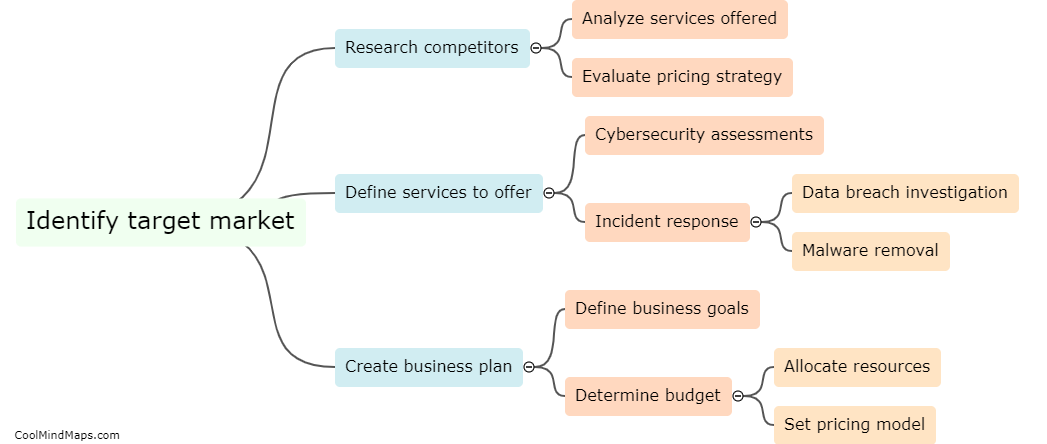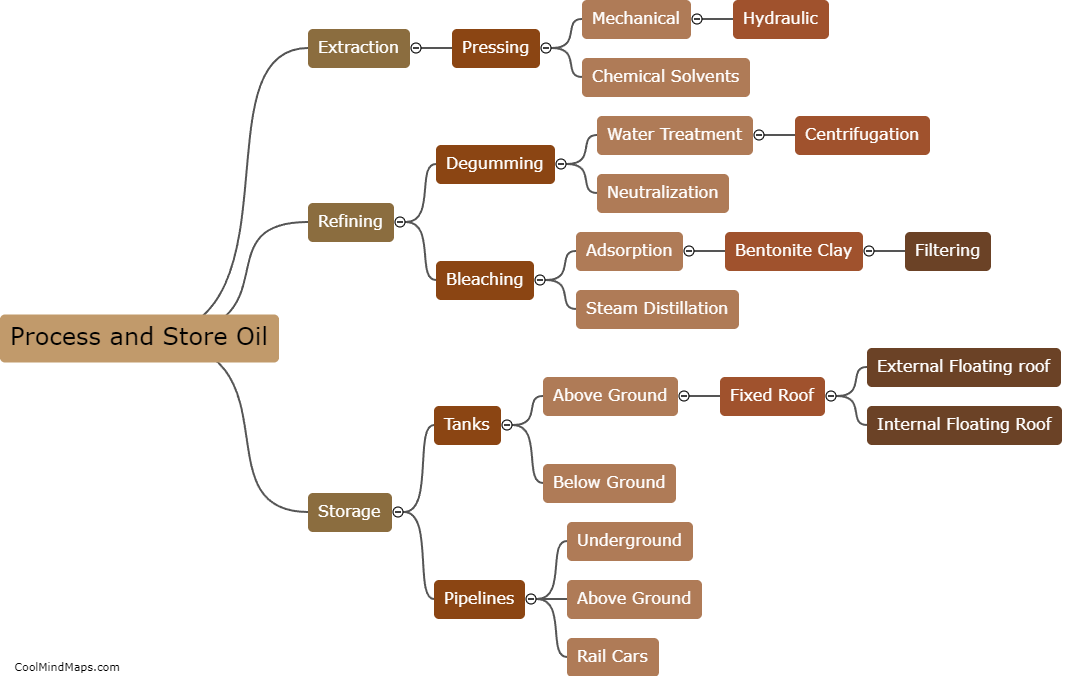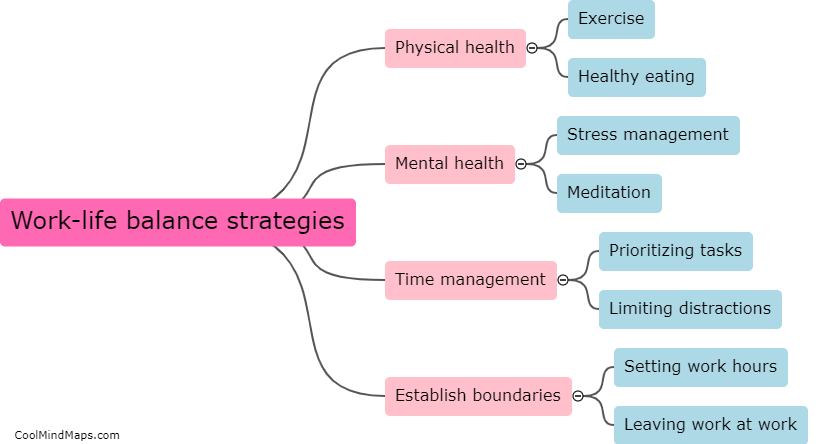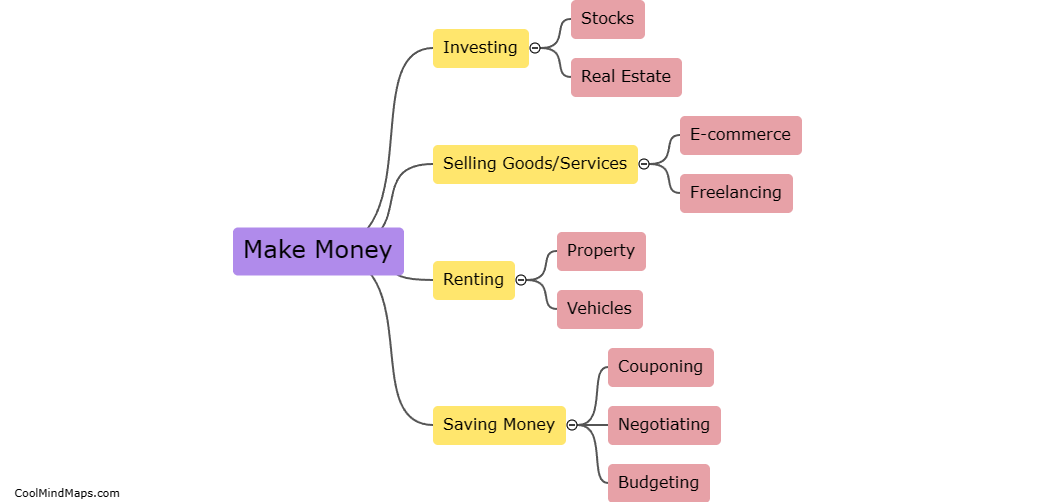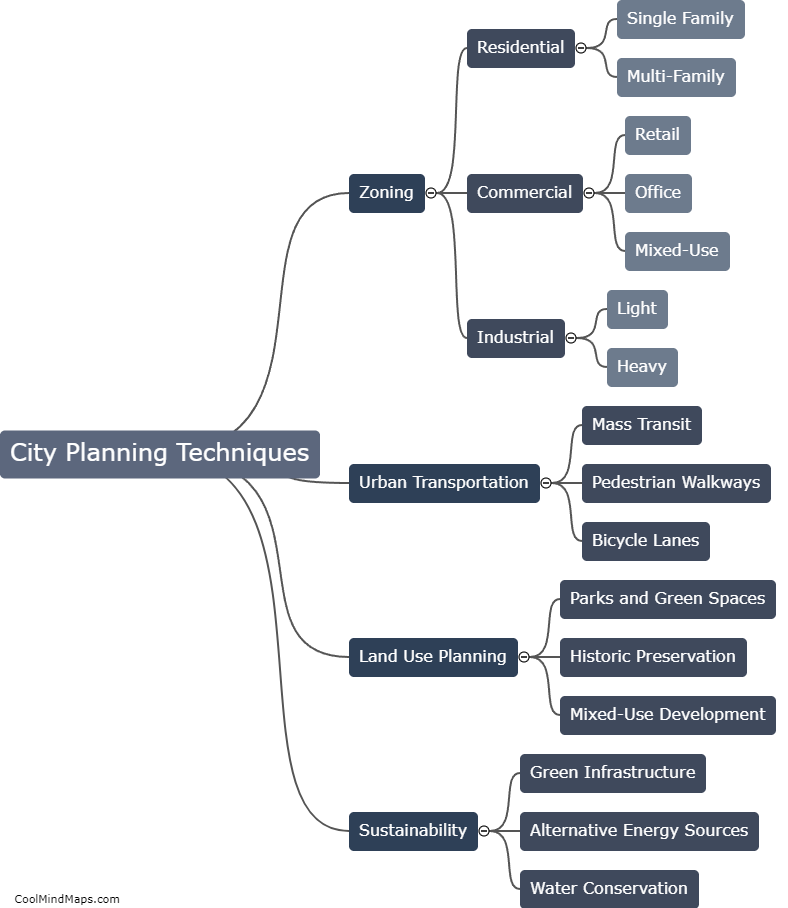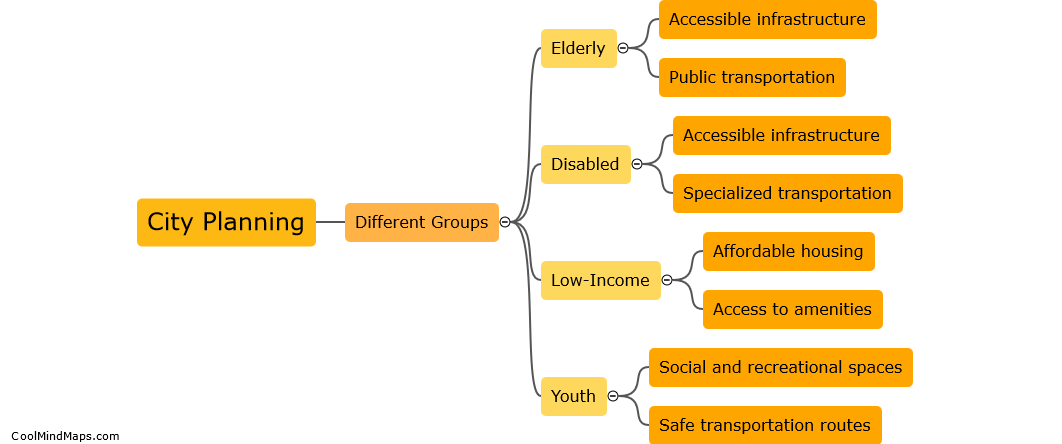What are the principles of sustainable city planning?
Sustainable city planning refers to the designing and development of cities with the aim of creating a livable, environmentally friendly, and economically vibrant community. The principles of sustainable city planning are guided by the need to balance the social, economic, and environmental factors that influence the growth of a city. These principles include the promotion of public transportation and non-motorized transport options to reduce traffic congestions and carbon emissions, the protection of green spaces and preservation of biodiversity, the promotion of green buildings and energy-efficient infrastructure, the use of renewable energy sources such as solar and wind power, and the provision of public amenities and services that are accessible to all residents. The goal of sustainable city planning is to create a resilient and equitable urban environment that can thrive now and in the future.
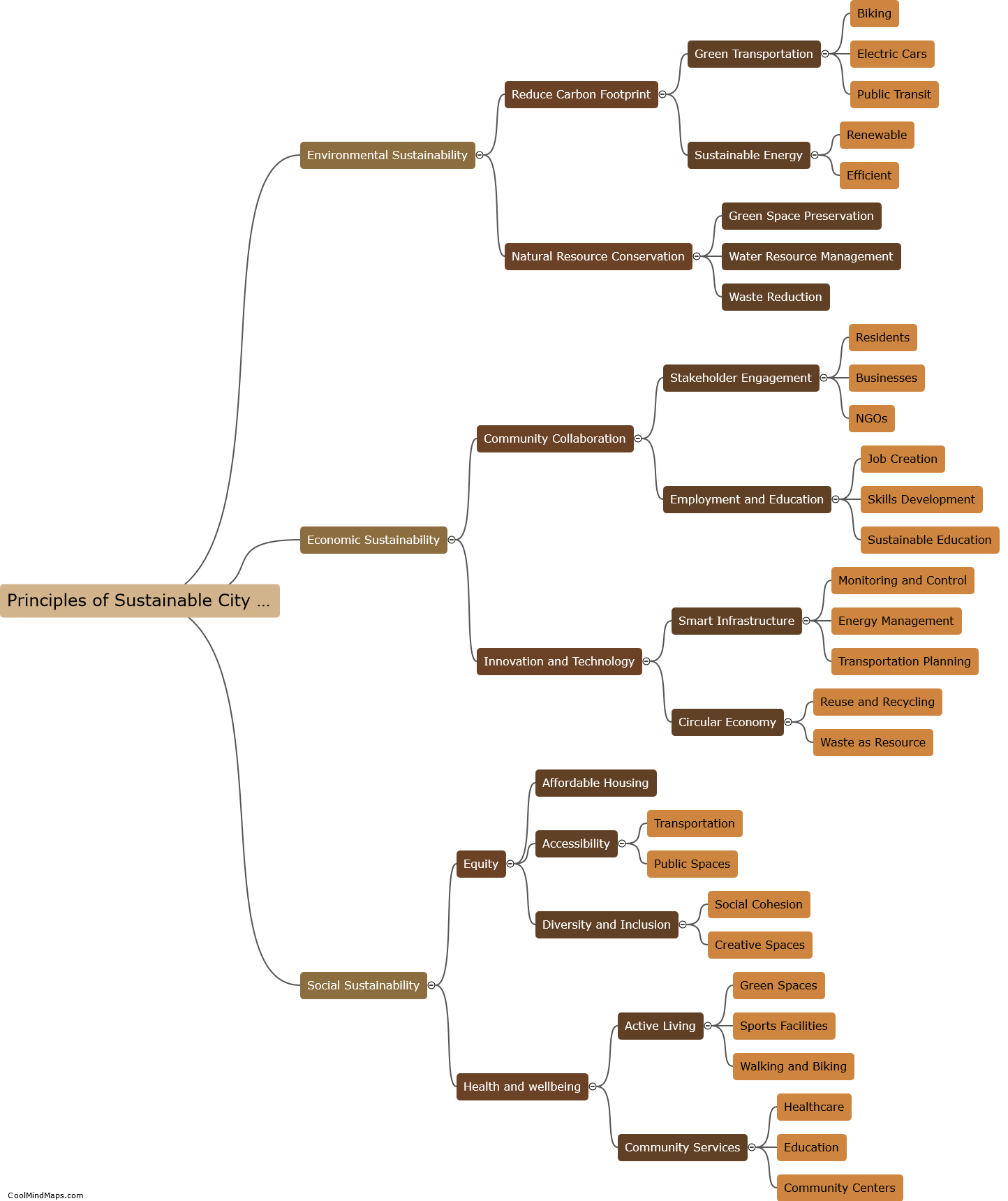
This mind map was published on 18 May 2023 and has been viewed 97 times.


